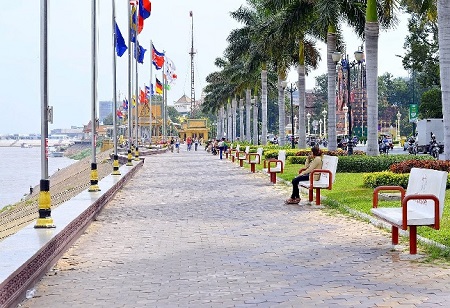The Ministry of Labour and Vocational Training has reported that in a span of 45 days, close to 20,000 young individuals from underprivileged households have registered for and completed vocational training. Kata Orn, a spokesperson for the ministry, highlighted collaborative efforts with relevant stakeholders to ensure widespread awareness of the initiative. Specialized teams from the ministry have undertaken a proactive approach, going door-to-door to inform people about the vocational training opportunities. This method has generated considerable interest among the general public and eligible youth who are keen to participate in the program. The spokesperson added that they have multiple technical and vocational training institutes, and a significant academic year program is commencing at the National Polytechnic Institute of Cambodia (NPIC).
This initiative stands as a representation of a nationwide training program. The sectors most in demand among young individuals include construction, electricity and energy, electronics, manufacturing, general and auto mechanics, business, IT, and heating, ventilation, and air conditioning. Tan Monivann, Vice President of the Cambodia Chamber of Commerce and President of the Cambodia Automotive Industry Federation (CAIF), commended the effort to provide training at state institutions for 1.5 million underprivileged youth. He noted that this plan effectively addresses the needs of disadvantaged young people, enabling them to acquire skills and secure decent employment, thereby enhancing the well-being of their families.
"In Cambodia, we've always had a wealth of youthful potential, but there has been a lack of essential technical training to meet the demands of the job market. I am hopeful that, starting in 2024, we will no longer experience a shortage of skilled labour. This program for technical and vocational education aims to develop a genuinely skilled workforce capable of contributing to Cambodia's key sectors", stated Tan Monivann. According to the ministry, the nationwide training will concentrate on 10 priority sectors, encompassing 38 skills. These sectors include construction, electricity, electronics, heating, ventilation and air conditioning, general and auto mechanics, tourism services, agriculture and agro-industry, business, and information technology.

